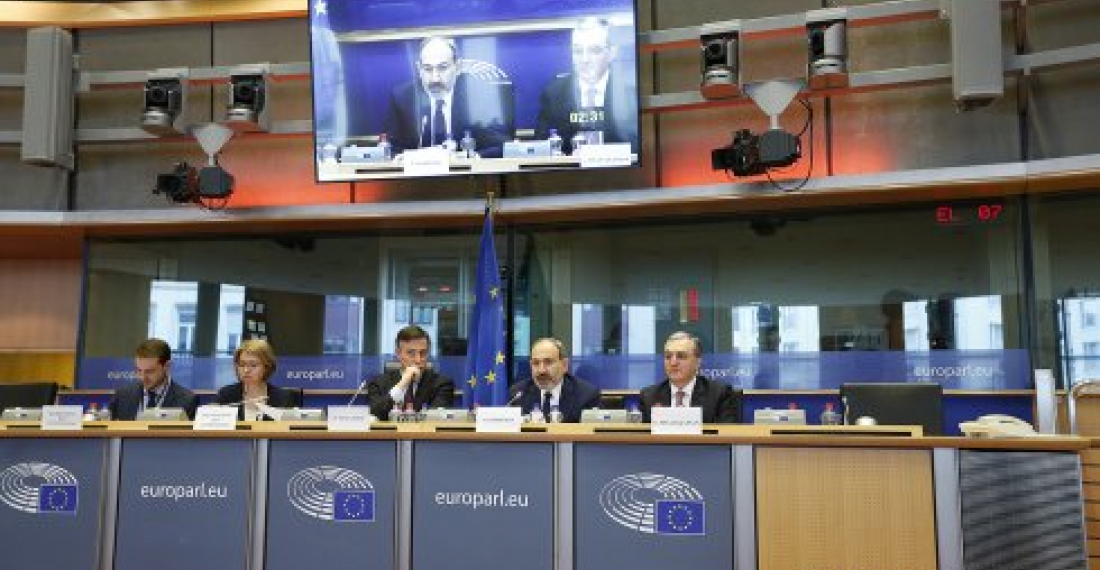Премьер-министр Армении Никол Пашинян в ходе выступления в Европейском парламенте, подчеркнул важность мира на Южном Кавказе. Но он вновь заявил о необходимости вовлечения руководства армян в Нагорном Карабахе в переговоры, направленные на урегулирование конфликта внутри и вокруг территории.
"Мы рассматриваем Южный Кавказ как регион, где независимые государства живут в мире, солидарности и сотрудничестве. Действительно, в современном мире закрытые границы считаются как минимум экономическим и политическим абсурдом. Мир меняется с каждым днем, двигаясь ко все большей взаимосвязи и взаимозависимости. Наш регион нуждается в новых формах диалога, мирного сосуществования и экономического сотрудничества. Культура диалога, терпимости и компромисса должна доминировать над всеми существующими разногласиями на Южном Кавказе", - заявил Пашинян на встрече с иностранными парламентариями Комитета по внешним связям Европейского парламента в начале своего официального визита в Бельгию и в европейские учреждения в Брюсселе:
Пашинян настоял на том, что Степанакерт тоже должен "сесть за стол переговоров", сказав:
"Мы убеждены, что урегулирование конфликта подразумевает необходимость уважения права народа Нагорного Карабаха на самоопределение.
Люди в этом горном регионе уже более двух десятилетий де-факто живут в независимости. Сегодня там выросло молодое поколение, которое не может себе представить никакой альтернативы независимости.
Если мы стремимся к мирному, справедливому и прочному урегулированию конфликта, народу Нагорного Карабаха должна быть предоставлена возможность самому решать свое будущее. Я не могу представлять народ Нагорного Карабаха. В качестве премьер-министра у меня есть мандат только граждан Армении, а не армянского населения Нагорного Карабаха, которые имеют свою конституцию и формируют свое правительство.
Для меня очевидно, что реального прогресса мирного процесса можно достичь только тогда, когда народ Нагорного Карабаха сядет за стол переговоров, когда будет услышан и учтен голос народа Карабаха".
Пашинян приветствовал "конструктивный и сбалансированный подход Европейского Союза" к карабахской проблеме. Он также сказал, что "Соглашение о всеобъемлющем и расширенном партнерстве с Европейским союзом имеет огромное значение для успеха наших реформ".
С полным текстом выступления премьер-министра Никола Пашиняна в Комитете по иностранным делам Европейского парламента в Брюсселе от 4 марта 2019 года можно ознакомиться на сайте правительства Армении, здесь.
источник: commonspace.eu
фото: Премьер-министр Армении Николь Пашинян выступил в Брюсселе 4 марта 2019 года в комитете по иностранным делам Европейского парламента (фото любезно предоставлено пресс-службой правительства Армении)






